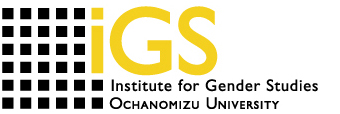1st IGS Seminar (Reproductive Issue Series) “Right to Know Donor Information of Donor Conceived People”
On June 8, 2016, the first IGS seminar (reproductive issue series) was held at Ochanomizu University. It was organized by IGS, Ochanomizu University, and presented the work of the Study Group, whose main members are Professor Naoaki Kuji (Tokyo Medical University), Professor Kiyomi Shimizu (Josai International University) and Yukari Semba (IGS, Ochanimizu University). The mission of The Study Group is to study diverse families built by donor conception and the wellbeing of people involved in donor conception. We discussed the right of donor-conceived people to know donors’ information at this seminar.
The first speaker was Prof. Naoaki Kuji of Tokyo Medical University. He is an ob-gyn who has had experience practicing donor insemination. The title of his presentation was “Donor Insemination in Other Countries from My Perspective as A Doctor: Germany, the UK, and Belgium.” He first presented the issues surrounding DI and then introduced the situations in Germany, the UK, and Belgium. He visited those countries and collected information. According to his presentation, the main issues surrounding when and if donor-conceived people find out that they were born by donor insemination were “impact on the relationship between parents and children,”“identity loss,” “loss of genetic information,” and “the fear of consanguineous marriage.” Prof. Kuji mentioned that he told his clients that 1) the donor was anonymous, 2) but he recommended his clients disclose their DI conception to their children, 3) advising that disclosure would never affect their family relationship, and 4) telling them to think about the future risks and demerits for their children if they hesitated to disclose the circumstances of conception to their children. In Germany and the Netherlands, donor information was discarded and the number of donors decreased after the right to know donor information of donor-conceived people was secured legally. From those situations, he concluded that in Japanese society, effort should be made to make DI more acceptable, and there must be discussion and legislation regarding the parent-child relationship resulting from reproductive technologies and the establishment of a related counseling system.
The second speaker was myself, Yukari Semba of IGS, Ochanomizu University. I talked about the “Right to Know of DI Offspring in the UK, the Netherlands, and the United States.” I visited those countries, and discussed the information I collected there. In the UK and the Netherlands there were national organizations to assist donor offspring in finding their donors and half-siblings through DNA database donor link systems. In my presentation, I introduced the activities of UK DonorLink (it was closed in 2013, when all operations were transferred to National Gamete Donation Trust) in the UK and Fiom in the Netherlands, and then described how donor-conceived people’s right to know the information of their donors was secured by those organizations. In Germany, donor-conceived people’s right to know about donor information was secured in the court case of Sarah Pienkoss. I finally introduced the “Uninformed Parentage Act” in the United States and explained how the act regulated the relationship between parents and children created through reproductive medicine. The prevalence of genetic tests has resulted in cases where children accidentally found that they didn’t have any genetic relationship with their parents, or where donor-conceived people were able to connect with their donors and half-siblings. In conclusion, I argued that donor anonymity should be abolished in Japan because we could learn from the cases in other countries where donor anonymity is no longer secured.
(Yukari Semba, Project RF of IGS, Ochanimizu University)
Date/Time: June 8, 2017 18:30–20:30
Seminar Venue: Room #408, Graduate School of Humanities & Science Bldg., Ochanomizu University
Speakers:
Naoaki Kuji (Tokyo Medical University) “Donor Insemination in Other Countries from My Perspective as A Doctor: Germany, the UK, and Belgium.”
Yukari Semba (IGS, Ochanomizu University) “Right to Know of DI Offspring in the UK, the Netherlands, and the United States”
Coordinator: Yukari Semba (IGS, Ochanomizu University)
Organizer: Institute for Gender Studies, Ochanomizu University
Number of Participants: 22

